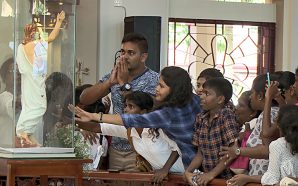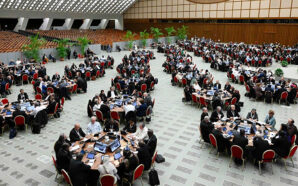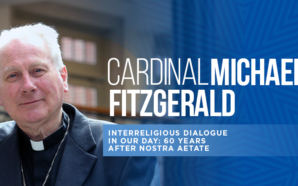September 21 is International Day of Peace
We descendants of migrants who came to Australians are very fortunate that no war has been fought on our soil. During the 1939 war, we faced possible invasion by Japanese troops, and people in Darwin experienced bombing. At other times in our history people have feared invasion or a catastrophic nuclear war, but generally we have lived in undisturbed peace.
The experience of many Indigenous Australians and people who have come to Australia as migrants or who have sought protection here has been very different. They have experienced the horrors of war – lost homes and family members to bombs, seen daughters raped, forced out of their homes, without food and shelter and at constant risk of casual violence. They have seen war, not as abstractions in which the world is divided into allies and enemies, but in its realities of pain, brutality, terror, weakness in the face of unfeeling power, as a place where there are no winners only losers, and our shared humanity is the greatest loss of all. Bombs and shells may wear national badges as they leave guns and planes, but when they reach their destination they wear only the undiscriminating face of death, destruction and terror. For those who suffer from it there is no such thing as a good war.
There is nothing new in this. But despite the images we see of the horror of war and our knowledge that modern technology and atavistic savagery make wars increasingly destructive of human life and culture, governments are increasingly ready to engage in military actions whose effects they will not experience in their own nations. They also stir hostility to rival nations and breach agreements designed to make war less likely.
For this reason, peace, though a great blessing, is not to be taken for granted. It needs to be worked for in all our relationships – personal, local and international. Peace and war begin in the human heart as we deal with the range of conflicting emotions that arise in the course of a day and over a lifetime. To find and make peace we must first recognise the desires, frustrations and anger against others that punctuate our relationships. Then we must work through these movements of the heart by deepening and mending relationships and declining to nurture our resentments. We build peace at home by looking beyond the rationalisations that we offer for acting badly towards to others and by recognising our hidden motives.
To build peace we need also to attend to the relationships we form in our schools, workplaces and local activities. This demands that we reflect on the way we relate to our friends and to strangers, aware of the way in which we can seek close relationships by excluding those beyond our friendship group, so making strangers into enemies. Making peace means crossing boundaries and going out hospitably to others.
This is the spirit with which we at Jesuit Social Services try to go out to vulnerable people who feel excluded from society and encourage them to show to others. Prejudice and hostility are often fuelled by fear. To be trusted can bring peace.
That is also true of our national life and of our relationships with minority groups. At a time when we have differences with such nations as China and Iran it is important to attend to the images and comment in which they are represented, and to resist digging gulfs between them and us. We should particularly resist warlike language and temptations to join provocative military action. As the American proverb goes, jaw jaw is better than war war. But the wrong kind of talk can easily slide into war.
Fr Andrew Hamilton SJ writes for Jesuit Communications and Jesuit Social Services.








